Bernhard Eisel: The five races that changed my life
'I started to question whether I still needed to be part of pro cycling'
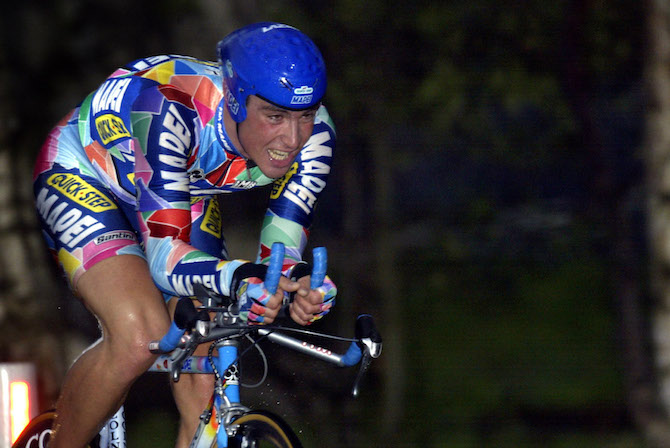
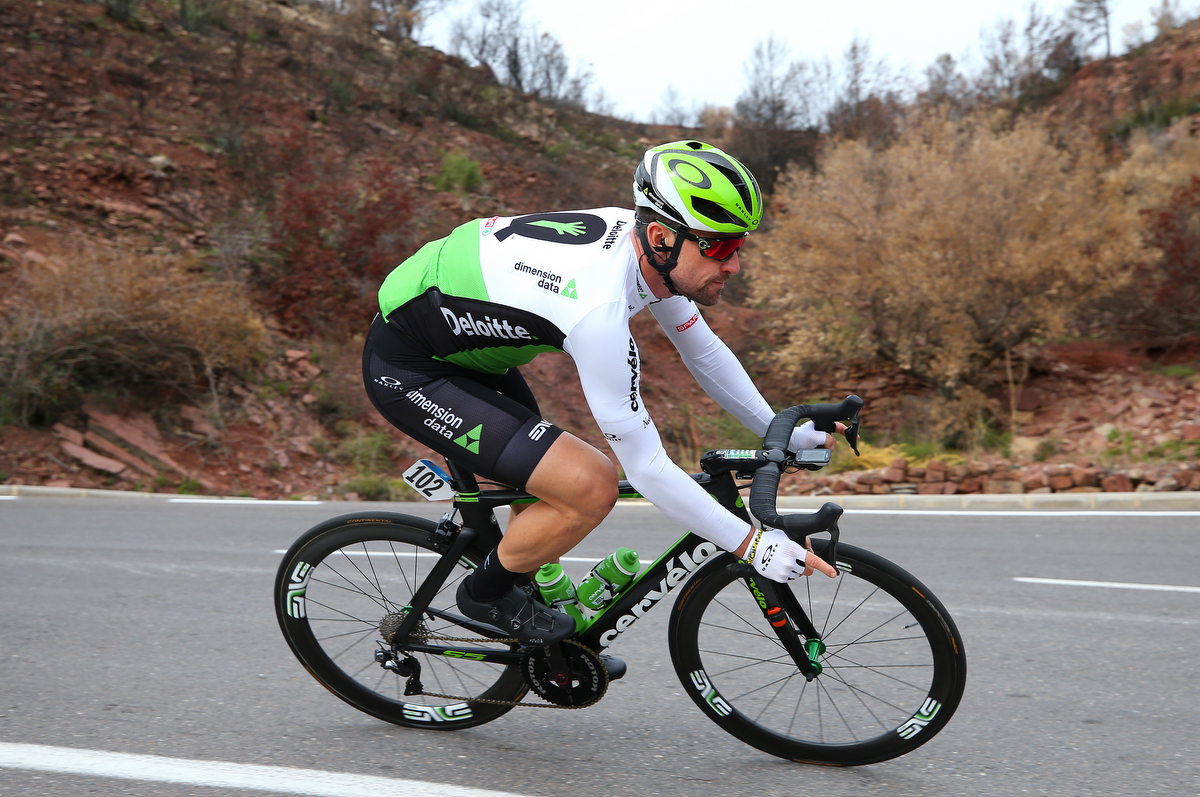
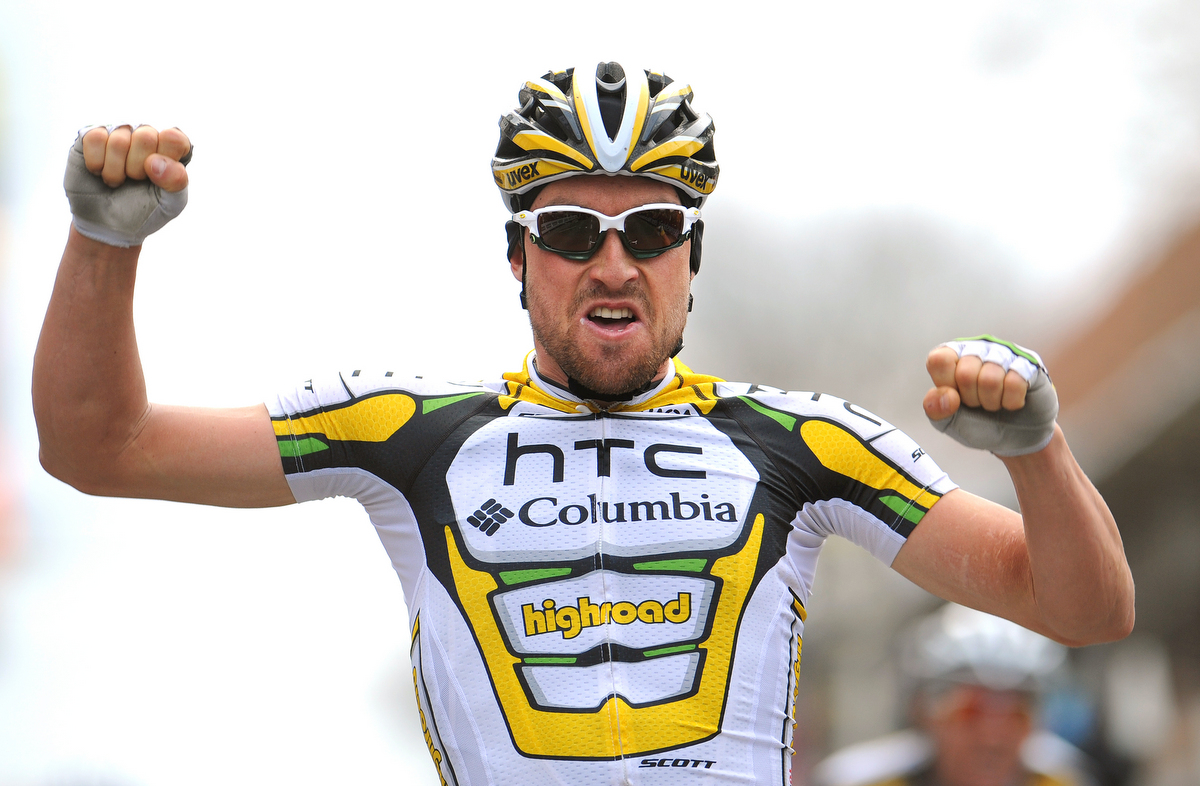
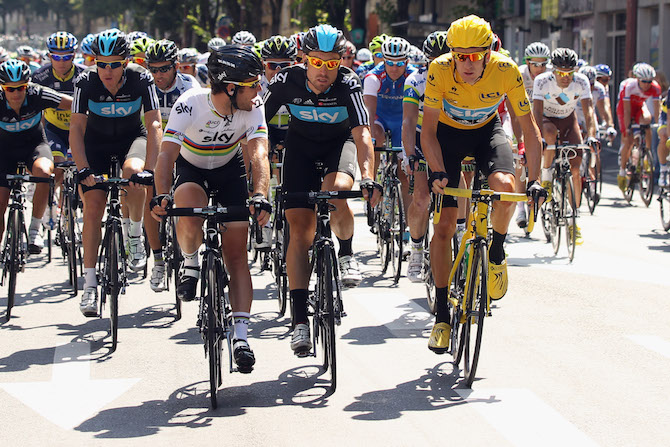
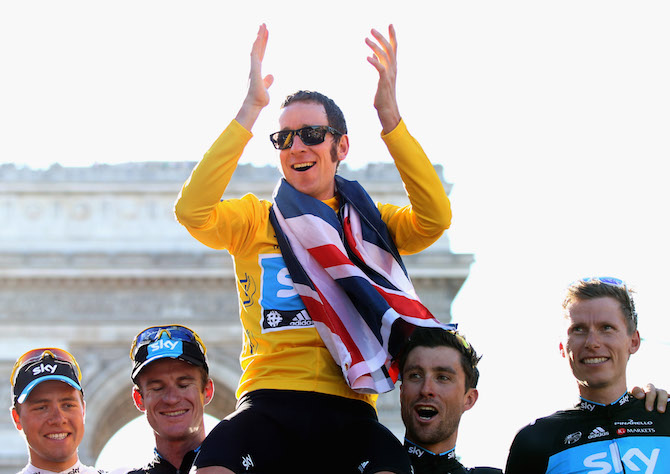
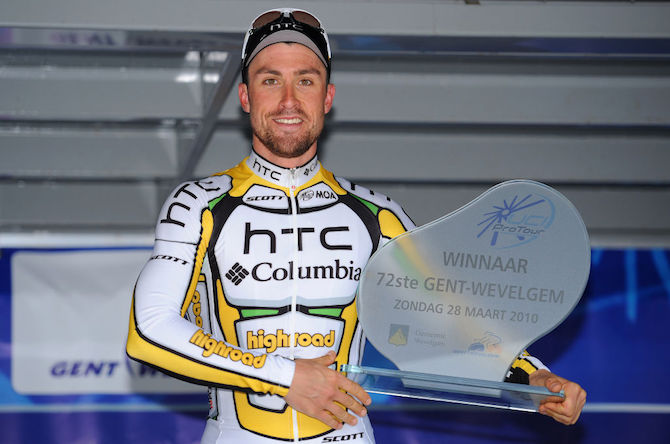
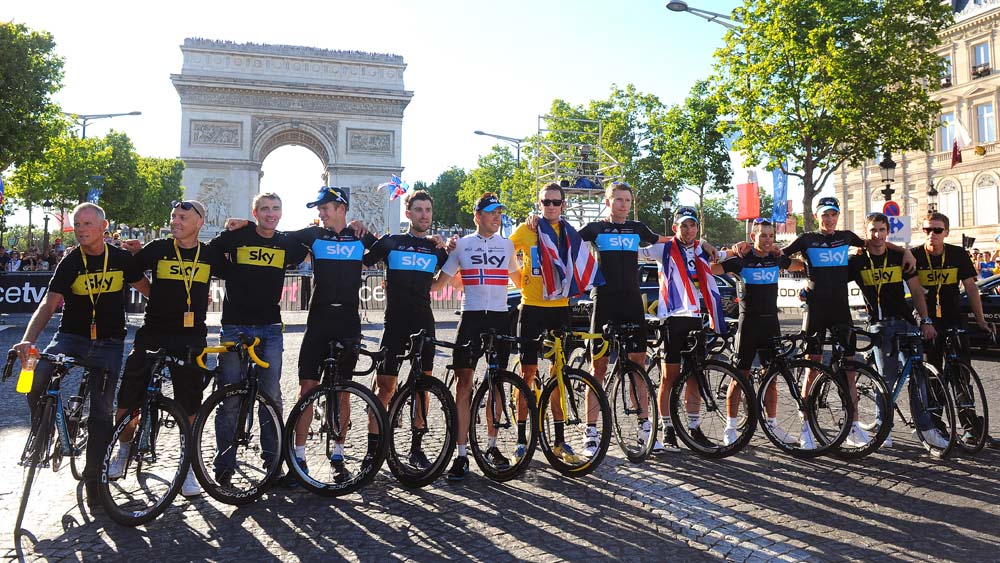
Bernhard Eisel is one of the most respected and experienced riders in the modern peloton.
At 37, he has raced alongside the likes of Philippe Gilbert, Fabian Cancellara, Mark Cavendish and Bradley Wiggins.
Now the road captain at Dimension Data, and with a career spanning almost two decades, the Austrian sat down with Cyclingnews' Daniel Benson at September's Canadian WorldTour races to open up about the races that have left their greatest impression.
- Alberto Contador: The five races that changed my life
- Philippe Gilbert: The five races that changed my life
- Laurens ten Dam: The five races that changed my life
Bevilacqua 2000
One of the most life-changing races for me came in 2000 when I won the Bevilacqua in Italy. I had come back from a big crash – one that wasn't too dissimilar from my fall in Tirreno-Adriatico earlier this year. In my first races back in 2000, I was scared shitless of being in the bunch because my front forks had snapped in training, and I couldn't shake that memory from my head.
I'd split my face open, lost some teeth, and to be honest it wasn't an easy recovery period. I abandoned a number of races during my comeback, but I won Bevilacqua ahead of Alessandro Ballan, I think, and that was my ticket to turning pro.
At the time I was with a small team – an under-23 squad in Italy that was actually a feeder for Roslotto – but winning that race was my introduction to Mapei. Suddenly I was on their radar, and that win opened the doors for me when I was just 19 years old.
I was a first-year U23 rider, but I had only started racing in the second half of the season because in the first half of the year I'd focused on my studies. But the snapped forks kept me out for two more months, so it was tough coming back.
Get The Leadout Newsletter
The latest race content, interviews, features, reviews and expert buying guides, direct to your inbox!
I still managed to get 20 races in that year. All I remember from the race was that it was raining the entire time and I kept on getting dropped on the climbs. For those who aren't familiar with the race, it's in the Veneto region, which is a great area, but I managed to keep coming back, and in the sprint I came from behind and took the win.
I wasn't on anyone's radar until that point – not even my own – but that win changed my life, for sure. I don't really remember crossing the line, but I probably just screamed in shock. Alex Carerra, the rider agent, helped me then find a place at Mapei, and at Plouay he helped move things along with an introduction, and from there the team invited me along for a test. The rest is history, and I'm still here!
Vuelta a Cuba 2002
This was like going on holiday. With your mates. To Cuba. For three bloody weeks and having the best time ever. It was an adventure, and it was so long ago that you could still smoke on flights.
I remember that we took off from Madrid and people were smoking right next to me. It was crazy, and you can forget about all this first-class nonsense: we were crammed in coach and sitting in clouds of smoke.
Mapei sent a team that had me, Aurelien Clerc, Pippo Pozzato, Frederik Willems, Graziano Gasparre and Evgeni Petrov in it. So we were all young and super enthusiastic, and we went around the entire island and really connected with the locals.
I remember we'd come to massage after the stages, and the table would be right by a swimming pool, so we'd have massage and then just jump right back into the water. It was a complete adventure and you never knew what was happening from one moment to the next.
One night you'd get to the hotel and there'd be electricity but no hot water. The next night it would be the other way around.
Some of the teams couldn't afford the bottled water, and it ended up cheaper for them to drink whiskey in the evenings, and you'd see riders carting around cigars.
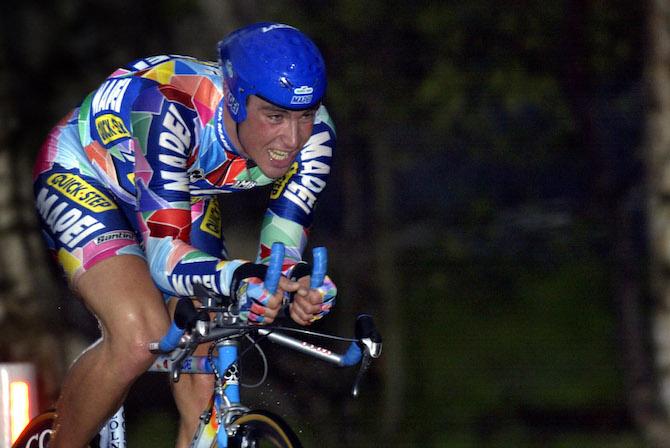
One night, on the way back from a stage, we were talking to a taxi driver, and he invited the team for dinner. So the next night we were in his living room having dinner with his family and kids. Every now and then I see my teammates from that race and we talk about going back. These days it's airport, race, leave two hours later, but that race in Cuba was totally different.
It was good racing, too. Pippo won the GC and I finished second, but I only lost because the team brought time trial bikes for Pippo and Petrov. I actually had the leader's jersey until the TT, but had to race on my road bike.
Don't get me wrong: the WorldTour is great part of cycling, but races like Cuba always stand out. It was one of my favourite races and experiences because it brought us – the team – together, and we really connected. And that was such an important element for young riders who were still finding their feet at pro level.
So, when I see mechanic from Mitchelton-Scott, and I know he was at the Vuelta a Cuba in 2002, we can go for a beer together and talk about the past. It's a connection – a bond I guess – that stays with you. Cycling is such a quick sport, in so many ways, and your career goes so fast, but it's moments like that that you will always remember.
Gent-Wevelgem 2010
This was never really my favourite race, but in 2010 I was one of the strongest, even though it took me a good couple of weeks after winning the race for everything to sink in.
I made the first group, and then when others came across I split it again in the crosswinds and got rid of Oscar Freire, who would have probably smoked me in the sprint.
It wasn't just luck that day, and I actually influenced the race before taking the win. I felt like I had control, as well as form. I remember that in the sprint for the line there were six of us: George Hincapie, Sep Vanmarcke, Philippe Gilbert, Daniel Oss, Jurgen Roelandts and me. George went way too early, and over the years I've been asked loads if he was leading me out, but no – I just think he panicked.
When I then opened my sprint with more than 250m to go, I thought I'd gone too early as well, but I came with good speed, and took the win. I went to the podium, and the VIP area, and I think was already drinking by that point, and that evening my HTC team had one of their biggest team parties ever.
We'd won Gent-Wevelgem a few times, but we hadn't expected that one. Our Classics campaign hadn't been great that year, but that win was of course great for the team, and for me it was one of the biggest wins of my life. Probably my biggest.
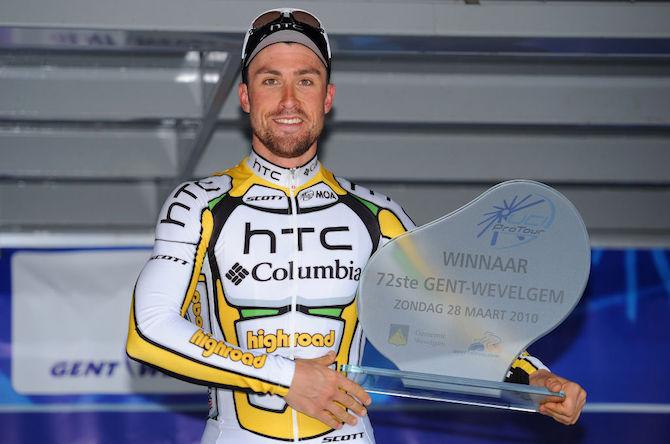
When you look back, who over the last 20 years has won a Classic or a semi-Classic? The list isn't that long. Of course, you've got riders like Tom Boonen and Fabian Cancellara, but they probably won about 40 big Classics and semi-Classics between them. There are not many other guys, so to say that I won one of them, that's special.
It made me realise that I'd genuinely achieved something as a rider, and I remember that I used to say that if I ever won a race like Paris-Roubaix, I'd just walk off the podium and quit cycling. That never happened, even though I tried to piss off enough people that they'd let me win, but it never happened. It would have been incredible, though, and I can't imagine anything better than winning a race like Roubaix and just saying, 'I'm done,' afterwards. I know it's not Roubaix, and is 'just' Gent-Wevelgem, but it's still special.
OK, if you win a lot of races, then maybe it's different because it doesn't change your career, but if you're a rider who is there and in the mix but never really right up there, then a win like this does change you. You're the rider who crosses the line first, who raises his arms in the air and, without sounding corny, you've made it. I'm not sure how I won it, though.
Maybe it just postponed a mid-life crisis by a few years, but, seriously, I think it just gave me balance, as a rider and as a person. You work your whole life for something like that, and if you're a Boonen or a Cancellara, you quickly move on to the next big race. But for a normal rider like me, a win like that alters your career.
When I really think about it, I'm not sure this race really changed my life, but, as a rider, as an athlete, it definitely altered my perspective on professional sport and the Classics. I achieved something that made me calmer and less driven in life. I achieved something significant in terms of results, so perhaps what it gave me was a level of peace.
Tour de France 2012
If I'm to move away from one-day experiences, then I have to include the 2012 Tour de France and being part of the winning team with Bradley Wiggins. He was a guy I was teammates with back in 2003 at FDJ, and I remember how crazy he was back then.
He'd win prologues and then abandon races the next day but that year at the Tour it was incredible, and being part of that – the joy, and being part of the plan that came together – is something I'll always be proud of. To have been one of those eight guys who supported Bradley is a special feeling, and it's something that I’ll tell my grandchildren about. He made a lot of sacrifices to win that race, and you could see that both from inside and outside of the team, but I also think that winning that race finished him.
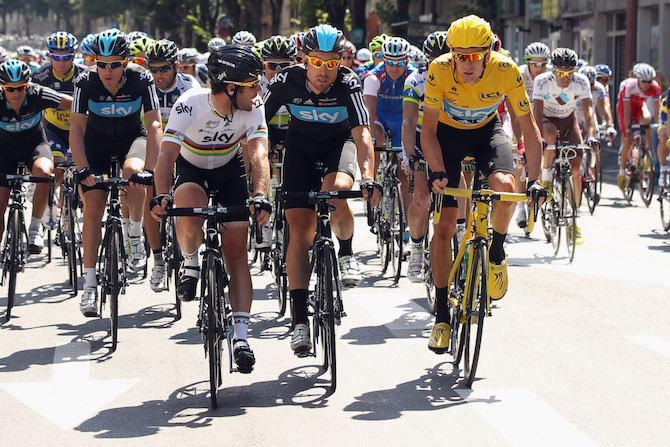
He still had aims and hopes, but I don't think he was prepared for everything life threw at him after winning the Tour. He just wanted to ride his bike and have fun. After the Tour, he wanted to go back to being Bradley Wiggins, but he was suddenly Bradley Wiggins the Tour de France winner, and that's completely different. He wanted to be able to have a pint here and there, and not be filmed. That comes with the sport, but I think he hated it.
In terms of the race, as a team our mindset was, 'We're going to win this Tour, and nothing else matters.' Of course, we won stages with Cav [Mark Cavendish], and we could have won another with him in Pau, but that day Brad punctured and we had to chase for two hours. We were cooked.
But we had amazing fun at that race. Of course, the pressure built up, but we never lost control and we had some great times at dinner. I was probably the only one drinking alcohol at the dinner table, so I celebrated every day in that sense. We won the Tour with a British team, with a British rider, on the Champs-Elysées with the yellow jersey leading the world champion out in a victory sprint. That was special.
I would have loved to have repeated it all again with Chris Froome, but it didn't happen. However, I can still say that I won the Tour de France and was road captain. Not many riders can say that.
Tirreno-Adriatico 2018
The crash in Tirreno this year really changed my life. It was a massive crash, but one that was entirely my fault. I managed to get my front wheel under a team car's front tyre, and l landed so hard, and directly on my face. I never lost consciousness, and, while I've had bad falls before, this was a massive one.
It really made me start thinking about life and everything else, but then of course six weeks later they found a massive subdural haematoma in my head. I didn't know such a thing could exist, but the small bleeding in my head just meant it kept getting bigger and bigger. It's one thing to know you've fractured your skull, but to have a scan and see that half of your brain is covered in a haematoma is a real shock.
A few days before the scan, Marco Haller crashed and broke his knee cap after hitting a car, but I was with him and I missed that car by just a few centimetres. If I'd hit it, then it probably would have been game over. When you put that all together, you start to realise how much risk goes on in the career of a pro cyclist. It's a crazy sport, with dangers, and as a rider I started to question whether I still needed to be part of pro cycling.
Later, when I got the diagnosis from the doctors, that I had the all clear, and that there was no lasting damage, I started to ride again. The first few rides were just about me enjoying the bike again. I did three weeks on the turbo, followed by cycling with a mate because there was still a risk of epilepsy, but as I started to train I started to really enjoy the bike again.
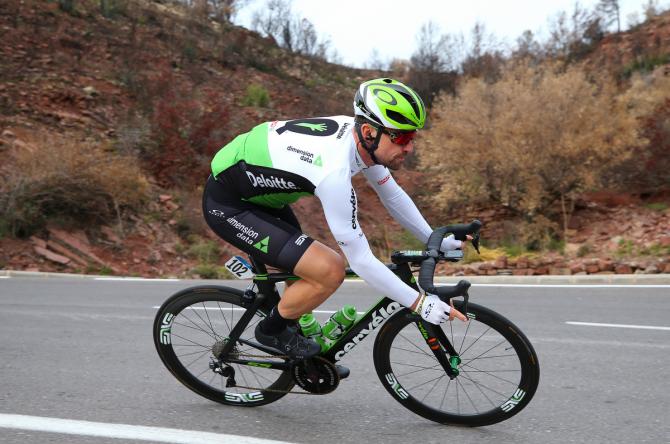
I didn't really have much of an outline in terms of training, but I was soon doing three hours, and then, before I knew it, I was back to five hours. I'd come home tired of course, but think to myself, 'When did I last enjoy riding this much?' It was probably 15 years ago, but in a way the crash made me realise that I still loved cycling, that I still wanted to do it, and that it’s still the greatest sport out there.
For me, it's never really been about the paycheque. It comes down to love – simple as that.
Daniel Benson was the Editor in Chief at Cyclingnews.com between 2008 and 2022. Based in the UK, he joined the Cyclingnews team in 2008 as the site's first UK-based Managing Editor. In that time, he reported on over a dozen editions of the Tour de France, several World Championships, the Tour Down Under, Spring Classics, and the London 2012 Olympic Games. With the help of the excellent editorial team, he ran the coverage on Cyclingnews and has interviewed leading figures in the sport including UCI Presidents and Tour de France winners.
